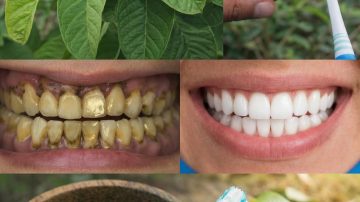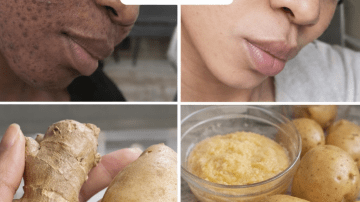Imagine a world where your daily beverage—simple, affordable, and soothing—delivers compounds that actively force abnormal cells into programmed death (apoptosis), block the formation of tumors, and provide immune defense without harsh side effects. This is the staggering potential of functional Herbal Teas.

The sensational claim that these teas “kill cancer cells” is not an old wives’ tale; it is rooted in serious scientific research investigating potent plant-derived phytochemicals. However, this profound knowledge remains widely unpromoted. Why? Because these accessible, unpatented natural remedies challenge the very foundation of the multi-billion-dollar pharmaceutical business model. The most powerful medicine is often the least profitable.
Ready to reclaim this vital knowledge? Read on to unlock the 10 powerhouse herbal teas backed by compelling scientific inquiry, discover the specific compounds that drive their cellular defense, and understand the core reason why this transformative information is often suppressed.
🔬 THE ANTI-CANCER ARSENAL: 10 Teas and Their Cell-Targeting Compounds
The anti-cancer potential of these herbs lies in their concentrated delivery of polyphenols, catechins, and flavonoids, which influence inflammation, genetic pathways, and cellular survival.
1. 🟢 Green Tea (Camellia sinensis)
- Key Compound: EGCG (Epigallocatechin gallate).
- Action: EGCG is the most studied anti-cancer catechin. It has been shown to block tumor growth pathways, induce apoptosis, and prevent DNA damage.
- Benefit: Strongly linked to a reduced risk of breast, prostate, and colorectal cancers. The ritual itself is simple and easy to implement daily.
2. 🟡 Turmeric Tea (Curcuma longa)
- Key Compound: Curcumin.
- Action: Curcumin is a natural anti-inflammatory agent that is highly effective at inducing apoptosis (cell suicide) in abnormal cells and inhibiting the development of new blood vessels that feed tumors.
- Benefit: Provides powerful cellular defense. Tip: Always add black pepper to the tea to boost curcumin absorption.
3. 🫚 Ginger Tea (Zingiber officinale)
- Key Compound: Gingerols and Shogaols.
- Action: These compounds are proven to possess direct antiproliferative effects, specifically demonstrated to inhibit the growth of ovarian and colorectal cancer cells.
- Benefit: Offers both comfort and potent long-term preventative support in one simple warm cup.
4. 🌸 Holy Basil Tea (Ocimum tenuiflorum – Tulsi)
- Key Compound: Eugenol and Ursolic Acid.
- Action: Known as a powerful adaptogen, Tulsi has been shown to help stop tumors by preventing angiogenesis (the formation of new blood vessels that feed cancer growth).
- Benefit: Reduces stress (a major cancer precursor) and provides systemic immune modulation.

5. 🌺 Hibiscus Tea (Hibiscus sabdariffa)
- Key Compound: Anthocyanins and Polyphenols.
- Action: The potent red pigments are antioxidants that fight oxidative stress and have been linked to triggering apoptosis in leukemia and gastric cancer cells.
- Benefit: Supports cellular health and provides cardiovascular protection.
6. 🌼 Dandelion Root Tea (Taraxacum officinale)
- Key Compound: Taraxasterol and Triterpenes.
- Action: Research has dramatically elevated Dandelion’s status, showing that its root extract can selectively induce death in various cancer cell lines, including those of the pancreas and colon, without harming healthy cells.
- Benefit: Acts as a powerful diuretic and supports liver detoxification.
7. 😴 Chamomile Tea (Matricaria chamomilla)
- Key Compound: Apigenin (a flavonoid).
- Action: Apigenin has been shown in studies to shrink cancer cells and inhibit their proliferation. The relaxing effect of the tea also reduces chronic stress and cortisol, which are major factors in disease progression.
- Benefit: Soothes the nervous system while providing targeted cellular protection.
8. ☕ Rooibos Tea (Aspalathus linearis)
- Key Compound: Quercetin and Luteolin.
- Action: This South African tea is caffeine-free but bursting with antioxidants studied for their role in preventing skin and liver cancers.
- Benefit: Provides strong cellular defense while aiding relaxation.
9. 🍃 Peppermint Tea (Mentha piperita)
- Key Compound: Rosmarinic Acid and Terpenoids.
- Action: Peppermint’s compounds are known to protect DNA from damage and slow tumor growth.
- Benefit: A detoxifying and digestive aid that supports long-term cell integrity.
10. 📜 Essiac Tea (The Traditional Blend)
- Ingredients: Burdock root, sheep sorrel, slippery elm, and rhubarb root.
- Action: Used for decades as a natural cancer-fighting tea, traditionally believed to detoxify the body and block abnormal cell growth.
🛑 THE BIG PHARMA SILENCE: Why This Knowledge Is Hidden
The core reason why these remarkable findings rarely reach the mainstream media or become integrated into standard oncology protocols is purely economic:
- Lack of Profit: Herbs like Turmeric, Dandelion, and Green Tea are unpatented, widely available, and inexpensive. Companies cannot secure the necessary intellectual property rights to monopolize and monetize a treatment.
- Cost of Trials: Developing a drug costs billions. Without a patentable product, there is no financial incentive for major corporations to fund the large-scale human clinical trials necessary for FDA approval, regardless of how promising the lab results are.
- The Model: The pharmaceutical business model relies on high-margin, proprietary medications, not affordable, natural food-based solutions.
👑 Final Thoughts: Reclaim the Power of Your Cup
The truth is clear: Nature’s pharmacy is exceptionally powerful. While drinking herbal tea alone will not replace conventional medical treatment for cancer, it provides a crucial, scientifically supported layer of defense.
By adding one or two cups of these antioxidant-rich teas daily, you supply your body with cancer-fighting phytochemicals that actively strengthen your natural defenses, manage inflammation, and support healthy cellular behavior.
Embrace the knowledge, use your teacup wisely, and let nature’s resilience support your lifelong health.






